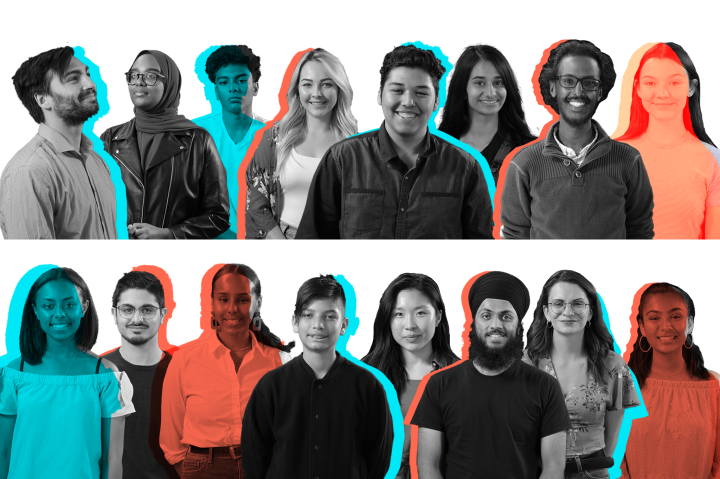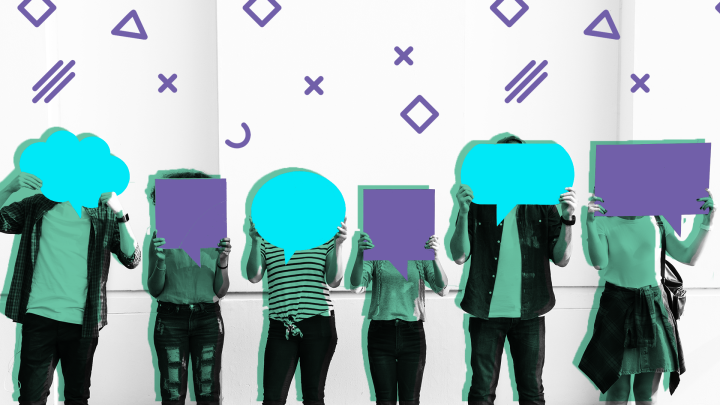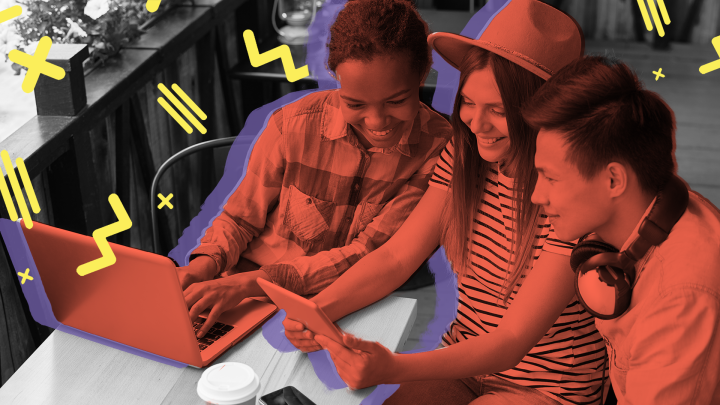
Generation Z deserves our attention.
It’s a cohort of young people who not only grew up with the internet, but were early adopters of smartphones, social media platforms and streaming websites to consume media. They can pretty much do everything on their phones, and they’re pretty good at it.
“Everybody expects the generation to be simply a continuation, as if gen Z is a more extreme example of millennials — that’s not true,” says millennial and gen Z expert Jason Dorsey based in Austin, Texas.
WATCH: Who is Canada’s connected and optimistic generation?

Like the generation before them, gen Z has been labelled everything from lazy to entitled to anti-social, but don’t let these vague stereotypes fool you: gen Z is ready to take on the world, in a multitude of ways.
Generation Z makes up roughly 17.6 per cent of Canada’s total population, according to 2017 data from Statistics Canada. Although there is no established start or end date, experts say gen Z-ers are born between 1995 and 2005, making the youngest 13 and the oldest 23. Some argue the generation ends at ages 22 (1996) or 24 (1994). This is still a growing population, one that may not have had traditional life experiences (jobs, mortgages, etc.) thrown at them. They are still optimistic about what their future holds — and truly believe they can change it.
Animator Issac Abdillahi, 24, who is on the cusp of generation Y and Z, says it’s almost like having two identities.
Dorsey, who is a millennial himself, has been working with a research-driven approach to unwrap the generation for the last 10 years. Not only is his goal to understand the generation’s attitudes and behaviours when it comes to things like spending money or finding jobs, it’s also to take this information to businesses that are curious about how this generation works. He says one of the key differences between gen Z and previous generations is how they were raised.
READ MORE: Generation Z doesn’t care much for driving, having sex or drinking alcohol
So what does this mean? Dorsey argues that when this generation “comes of age,” they are expected to work longer and harder in order to become successful. “This is a rebuttal to a sense of entitlement that unfortunately has been attached to millennials.”
Who is gen Z?
According to a non-scientific survey conducted by Global News in May, 356 self-proclaimed gen-Zer’s answered a variety of questions on topics like technology and mental health. They also made predictions on how their generation might influence the future job market or social issues. The survey found people in this age group typically describe themselves as everything from tech-savvy to game-changing to even kind. One of the most obvious characteristics is their connection to technology — a chunk of the generation doesn’t know what life is like without it.
“As technology advances we are advancing with it,” 16-year-old high school student, Jayden Dhari, tells Global News. “If we are a bit behind we will fall out of place.”
Others, like 16-year-old Furqan Mohamed, feel stuck.
Harjaap Singh Makkar, 21, says his generation is still one of the hardest to define.
“We are more diverse in our value systems, our beliefs and our ethnic backgrounds from any generation that preceded ours,” he tells Global News. “Personally I know my friends, we’ve seen our parents go through and struggle through one of the worst economic declines in the past century. It has made us more pragmatic when it comes to money, in terms of social justice you see more involvement, more acceptance, and more of a willingness to step forward and be the one that makes the change as opposed to just having the concern over just having my own business and I don’t need to worry about the rest of the world.”
How are they different?
Dorsey says research has already shown this generation is more frugal. “We find they are choosing not to buy premium brands that have a lot of labels and carry a higher price, but they rather pay for quality. They are very utilitarian.”
READ MORE: Is gen Z the loneliest generation?
This is important, he says, because it means this generation will understand the value of saving money down the road, like other generations in the past.
WATCH: They’re considered Canada’s most connected, open and optimistic generation, but who are they? Farah Nasser sat down with national online journalist Arti Patel to talk about this cohort of young people.

Their views on finances are driven by two things: their parents telling them to be more self-reliant and seeing their parents and family go through a recession.
“They caught the aftershocks of it and they heard about it so they are able to learn from it in a way in which they want to be more careful with their money and preparing to work harder and longer,” Dorsey adds.
Gen Z expert Connor Blakley, 18, founder of YouthLogic in Cleveland, Ohio, says the other difference between his generation and others is how they use technology.
“Even in comparison with millennials, we grew up with technology whereas they grew into it. They had a ‘regular’ cell phone, iPhone, iPad, laptop, … but we haven’t known a world where we haven’t been able to FaceTime a friend, order a pizza and call our mom at the same time,” he tells Global News. “In other words, we’re technology natives.”
He adds the generation uses technology to do just about everything — to talk to friends, watch videos and even do homework.
“A lot of people and brands complain that we only have an eight-second attention span. That isn’t true,” he claims. “Another difference is that before, older people tended to set trends. … because of social media and the worldwide influence it has, young people are setting the trends.”
READ MORE: Who is generation Z?
But with this always changing technology comes barriers. Gen Z has been criticized for their ability to socialize face-to-face and for their reliance on validation from peers (and strangers) online. And with social media-wide dares like the Tide Pod challenge, the rise of online bullying and how teens use apps like Snapchat and Instagram, some researchers and young people are worried about this generation’s mental health.
This can also lead to extreme impatience, Blakley says.
“One barrier is the immediate gratification. … It makes us less patient, which can have an impact on everything from waiting in line at a restaurant to the speed at which we want things to happen. We’re used to getting things from social media and technology whenever and wherever we want, so being forced to wait isn’t the easiest.”
This week, Global News will take a look at the many ways gen Z functions, from their views on mental health and the job market to how they take part in pop culture. As you’ll see, this is still a largely untapped generation. Follow along on Twitter with the hashtag #GenZed.
arti.patel@globalnews.ca
















Comments
Want to discuss? Please read our Commenting Policy first.